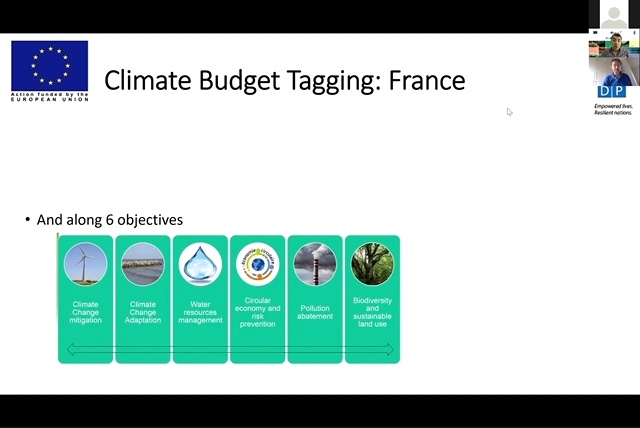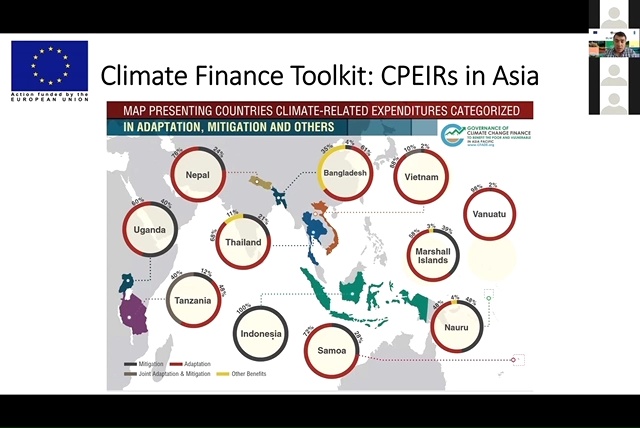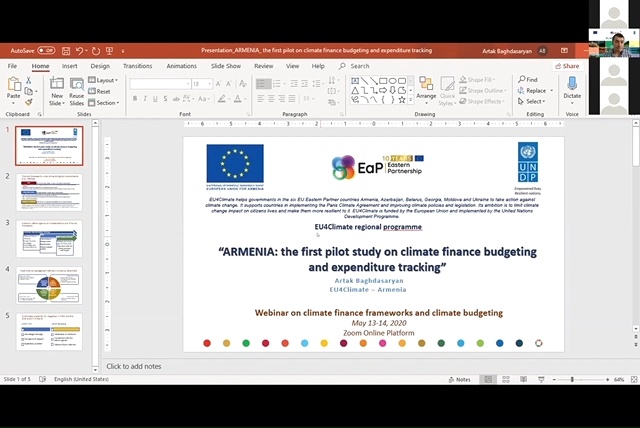The urgent need to mitigate climate change and adapt to its impacts is increasingly clear, as reflected in the Paris Agreement (PA). As stated in Article 2, the Paris Agreement “aims to strengthen the global response to the threat of climate change, […], including by making finance flows consistent with a pathway towards low greenhouse gas emissions and climate-resilient development”, thereby demanding existing flows to be compatible with the Paris Agreement (shifting “from brown to green”).
The European Union (“EU”) has demonstrated leadership through its commitment to become carbon-neutral by 2050, including by allocating 25% of the budget to climate action. Eastern Partnership (EaP) countries have similarly demonstrated their laudable commitment to climate action in their UNFCCC communications and associated policies. However, tracking and leveraging climate finance remains challenging because existing budget classification usually fail to “see” climate change. It is critical to improve climate finance frameworks to facilitate strategic action on climate change. Moreover, as the world embarks on efforts to recover from the global COVID-19 pandemic, there may be an opportunity to harness economic stimulus packages to promote a carbon-neutral and climate-resilient recovery. In this context, the timing is optimal to advance climate finance for accelerated ambition on climate change.
Supported by the EU, UNDP put together a regional workshop for Eastern Partnership (EaP) countries on climate finance and climate budgeting. In response to the restrictions imposed by COVID-19, this workshop was hosted as a two-day webinar, summarized as follows:
On Day 1 participants were informed on climate action in the EU in context of the Multiannual Financial Framework 2021-27, with a focus on climate markers and the Sustainable Investment Taxonomy. Participants were provided with an overview of climate finance through key case studies and tools, including climate budget tagging (CBT), which culminated in the opportunity for country representatives to conduct a practical CBT exercise and present their country-specific results.
On Day 2, participants benefited from a closer look at the climate finance toolbox, including hints for practical application. This included an interactive experience to apply the Climate Change Budget Integration Index (CCBII). Finally, UNDP Armenia presented the first EU4Climate Pilot Study on climate finance budgeting and expenditure tracking.
Countries provided very positive feedback to the event, especially regarding its practical application. It was well-attended by over 90 participants, including ministerial representatives from EaP countries, the European Commission and international experts. UNDP and the EC also demonstrated that they are committed to supporting countries to advance their capacities for tracking and allocating climate finance for strategic climate action.
The video recording of the key presentations during the webinar is provided below:
EU4Climate in Action: Piloting Climate Budget Tagging in Armenia (by Suren Poghosyan, UNDP Bangkok):

Overview and Practical Hints on the Climate Finance Toolkit (by Suren Poghosyan, UNDP Bangkok):

EU4Climate in Action: Piloting Climate Budget Tagging in Armenia (by Artak Bagdasaryan, UNDP Armenia):




